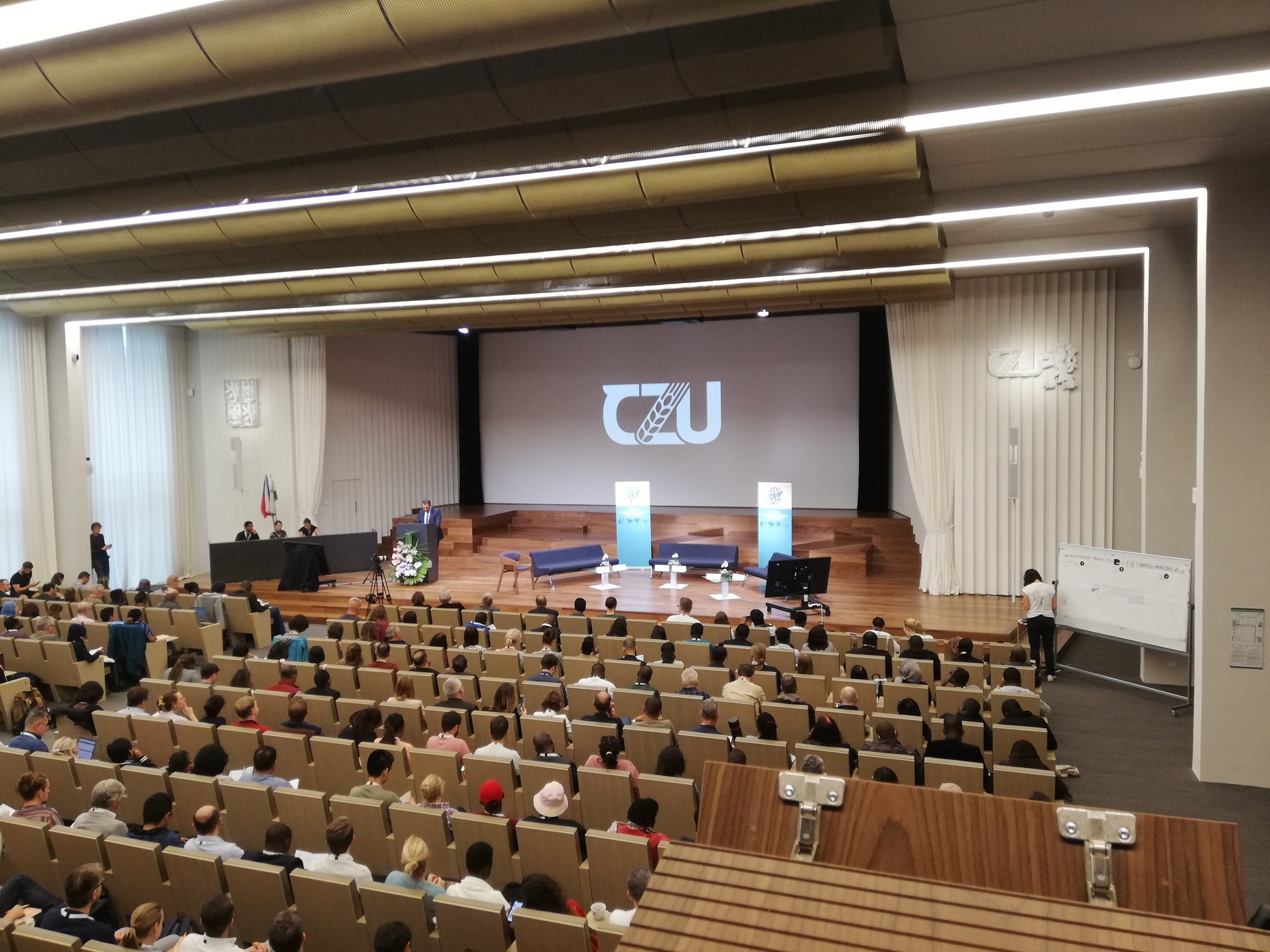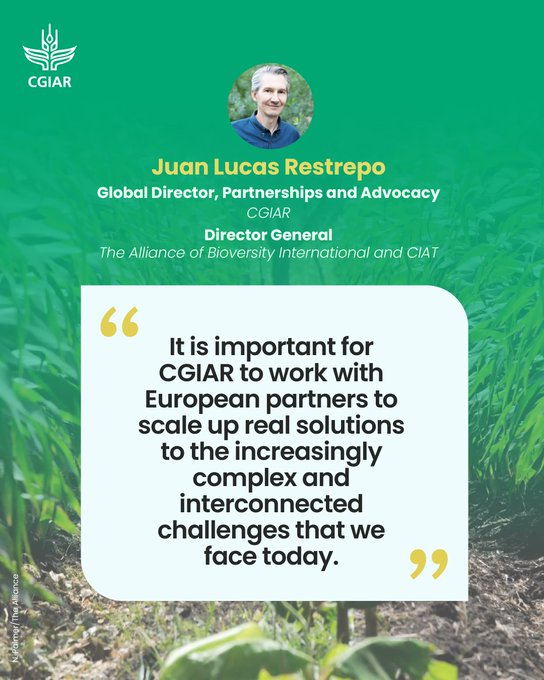The annual interdisciplinary conference on research in tropical and subtropical agriculture, natural resource management and rural development (TROPENTAG) was jointly organised by the universities of Berlin, Bonn, Göttingen, Hohenheim, Kassel-Witzenhausen, ZALF e.V. (all Germany), Ghent University (Belgium), Czech University of Life Sciences Prague (Czech Republic), BOKU Vienna (Austria), and the Council for Tropical and Subtropical Research (ATSAF e.V) in co-operation with the GIZ Fund International Agricultural Research (FIA).
Tropentag 2022 was organised as a hybrid conference by Czech University of Life Sciences, Czech Republic. The oral presentation sessions were streamed live via z=a conference app.
13/09 Pre-conference workshops:
- Workshop 1: ATSAF Academy – TT workshop 2022
- Workshop 2: Behavioural change to enable utilization of modern pyrolysis cookstoves in rural context
- Workshop 3: Communicating Science: How to effectively promote your work as a young researcher
- Workshop 4: Agroecology’s potential for development projects: insights from participatory approaches to designing and implementing sustainable food value chains
- Workshop 5 cancelled
- Workshop 6: How can social innovations be brought to scale?
- Workshop 7: Migration and translocality: capacity to harness migration for development in West Africa
- Workshop 8: Soil, plant health and consumer practices - how is it linked to agroecology?
- Workshop 9: Experiences in collaboration with societal actors in transdisciplinary research on child nutrition in drylands in Benin and Kenya
- Workshop 10: Networking Workshop WASCAL and its German Partners
- Workshop 11: European perspective on Agroecology: Participatory review of concepts and applications
- Workshop 12: Ancestral thought in the Andean region, walking the Andean wisdom in the social movements of Ecuador to Cauca. Defense of human rights and ancestral territory
- Workshop 13: Decoding agroecology - a guiding concept for sustainable transition of African agricultural systems?
- Workshop 14: One health approach to smallholder livestock production: antimicrobials
- Workshop 15: Rice cultivation in Namibia: The choice between high-tech and ecological agriculture
- Workshop 16: Building bridges between researchers and farmers with the help of digital training materials
- Workshop 17: withdrawn
- Workshop 18: A practice-oriented bottom-up approach of technology transfer to solve relevant problems in the Food Value Chains of rural areas in Sub-Saharan Africa
- Workshop 19: Co-creating a vision for stable and resilient agro-ecological landscapes: the case of tropical forest frontiers in the Upper Peruvian Amazon
- Workshop 20: Discussing the potential, opportunities and challenges of agrivoltaics and associated business models to feed the hungry world
14/09 Plenary session 1: Can agroecological farming feed the world?
- Keynote speech - Harold Roy-Macauley, AfricaRice Director General / Managing Director Regions and Partnerships
- Chair: Patrick Worms
- Rebecca Dero / Prolinnova smallholder farmer - Kenya
- Elizabeth Mpofu / Zimbabwe Smallholder Organic Farmers Forum
- Larissa Mies Bombardi / University of São Paulo - Brazil
- Jacobo Arango / CIAT Colombia
- Josef Garvi / Sahara Sahel Foods - Niger
- Petr Ehl / Interlacto company, Czech Republic
The films selected for this occasion sought to raise awareness about pastoralism as a sustainable nature-based production system and thus a form of agroecology ideally suited for drylands and mountainous regions – and for the climatic and economic uncertainties of today. The films focused on ecologically appropriate use of natural resources, the rights of pastoralists to continue to use and steward these resources, and the challenges they face in doing so.
The film-selection team comprised people from CELEP as well as from the Regional IYRP Support Group (RISG) in Eastern and Southern Africa: Agrecol Association for AgriCulture & Ecology and the German Institute for Tropical and Subtropical Agriculture (DITSL) in Germany; Veterinarians without Borders (Vétérinaires Sans Frontières, VSF) in Belgium; the Centre for Research and Development in Drylands (CRDD) in Kenya; the Africa Wildlife Foundation (AWF) in Uganda; and the Agricultural Research Council (ARC) in South Africa.
Welcoming remarks and an introduction to the film festival were given by Hussein Tadicha Wario, Director of CRDD. After screening ten short films that shared perspectives on pastoralism in Canada, Hungary, India, Kyrgyzstan, Mongolia, Turkey, Spain and Tanzania, several pastoralists and filmmakers responded to questions from the audience. The following day, a feature film from Argentina Arreo was screened, sharing the perspectives of a gaucho family during seasonal transhumance between the lowlands and highlands.
In addition, a member of the RISG in South America, Rogério Mauricio, Visiting Professor at the Thünen Institute in Germany, presented his short film on natural regeneration to develop a silvopastoral system in Brazil, and discussed this with a highly interested audience.
The Tropentag 2022 included a workshop on “Pastoralism, agroecology & climate change”, which revealed how family-based livestock production in pastoral systems has strong affinity with the principles of agroecology, which are embedded in pastoralists’ practices and strategies. This workshop included a presentation by Saverio Krätli on how pastoralism capitalises on variability, another by Zsolt Molnár and colleagues on how Hungarian and Mongolian herders perceive and manage change on their pastures, and presentations by Nasanjargal Garmaa and Raphael Mirriho Gurleyo on insights into the current situation of pastoralism in Mongolia and northern Kenya, respectively.
Agrecol and VSF set up a conference booth at the Tropentag to draw attention to the activities of CELEP and IYRP 2026, as well as activities of the Prolinnova network (www.prolinnova.net), of which Agrecol is the Northern Focal Point.
The films selected for the 2nd edition of the “Perspectives on Pastoralism” festival can be found on the film festival website (www.pastoralistfilmfestival.



No comments:
Post a Comment